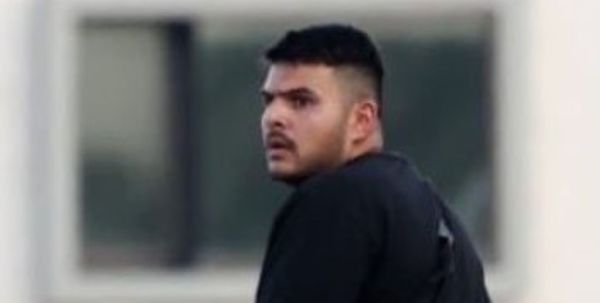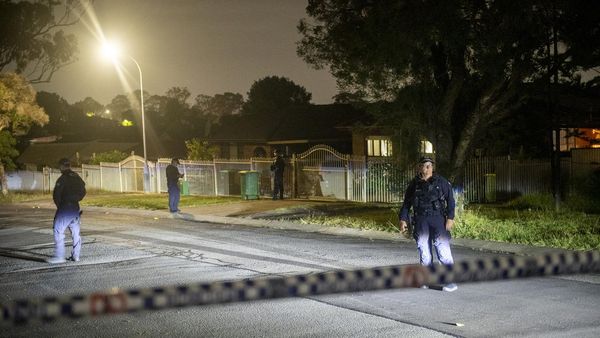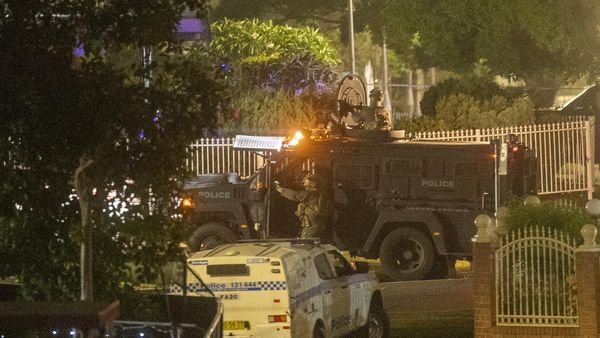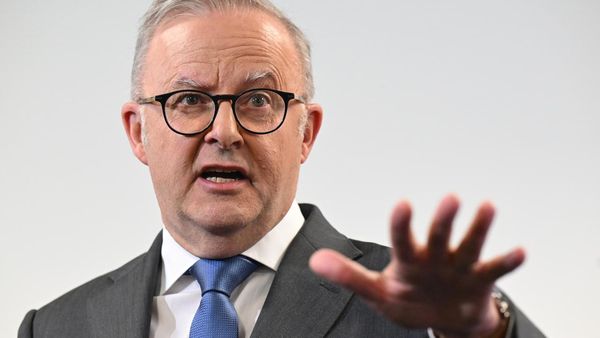
A woman who had a medically induced menopause after stopping active treatment for breast cancer, leading to periods so bad she “bled all over the floor in Tesco” and felt “suicidal”, has encouraged others in her position to “follow your gut instinct”, after doctors left her unaware of what was happening to her.
Vicky Saynor, 47, a luxury holiday accommodation owner, was diagnosed with breast cancer after finding a lump in her breast at Heathrow Airport while waiting to board the flight for her and her husband’s honeymoon to India in 2018.
Vicky, who lives in Cottered, Hertfordshire with her husband Chris, 47, her son, Mylo, 13, and her step-children Poppy, 17, Felix, 14, and Willow, 11, finished active treatment for her breast cancer in 2019 – but just a few months later she had incredibly painful joints and declining mental health to the point where she “could not look after” her children.
Vicky “really struggled” to get doctors to listen to her, and felt as though younger women were prioritised when discussing the fertility effects of cancer, and was not told that early menopause, or medically-induced menopause, could happen to her.
After eventually trying hormone replacement therapy (HRT), Vicky’s mental and physical health improved, and she finally felt as though she got her “life back”.
“I said to my doctor, if you don’t do something, my potential suicide is going to be on you because you will not listen to me,” Vicky said.
After Vicky married her husband, Chris, on June 30 2018, they were “so excited” for their honeymoon to India on October 24 the same year.
But, when waiting for their flight at Heathrow Airport, Vicky felt a lump in her breast through her top, explaining: “We went off on our honeymoon for 10 days, which was not fun.
“I absolutely knew that it was something serious.
“I regularly check my breasts and this felt very, very different.”

On their return, Vicky went straight to her GP, and she was diagnosed with breast cancer on November 28, 2018.
She had a lumpectomy on December 20, and in January 2019 she found out the cancer was triple negative and she needed chemotherapy and radiotherapy until November later that year.
But Vicky, who was 42 at the time, was not informed of the impact of cancer and cancer treatment on the menopause or fertility.
“Nobody had any conversations with me about fertility around what the implications could be for me, in terms of my health,” she explained.
“The younger people did – they were asked whether they wanted to freeze their eggs.
“I should have been having conversations around whether I have finished having children, and if I knew that this could potentially bring on the menopause.
“None of that was ever discussed.”
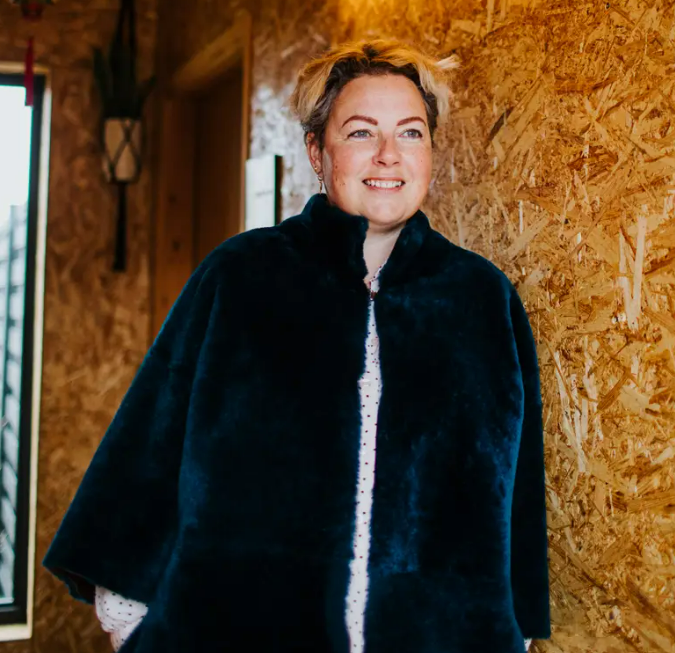
Just four months after finishing all active treatment, lockdown struck and Vicky almost instantly felt the toll on her mental and physical health.
“I had pain in my body, in my joints, I was ridiculously tired, and I gained a lot of weight, and my mood was really, really low,” she said.
Vicky also began to have issues with her period – when starting chemotherapy, they completely stopped, but in 2021 they came back.
“I suddenly started to have the most ridiculously heavy period I’ve ever had in my life,” she said.
“And if I didn’t know any better, I would have actually thought I was having a miscarriage.
One time my bleeding was so heavy I actually bled all over the floor in Tesco— Vicky Saynor
“One time my bleeding was so heavy I actually bled all over the floor in Tesco.
“All sanitary items wouldn’t touch it – I was wearing sanitary knickers and changing those every hour or so.
“And these periods would go on for about 10 days.”
Vicky “insisted” on being seen by her doctor, and after having some scans, they decided it was best to have surgery on her womb as she had large fibroids and cysts, and doctors said that was probably why she was having such heavy periods.
At that point, Vicky asked them whether it could be the menopause, explaining: “They said no it isn’t the menopause, and that I was too young for that.”
After the operation, Vicky continued having heavy periods and painful joints.
“I was unable to walk the dog without coming back and having to take quite high-strength pain relief, which was having a huge impact on my life when I wasn’t able to run our business properly,” she said.
“I couldn’t look after the children properly.

“My mental health was spiralling and I was basically at the point where I felt suicidal.
“I just felt that this was life after having a cancer diagnosis, and everybody’s focused on me surviving it and I just felt like this isn’t a life.
“My moods were horrendous and I had so much anger.
“My family was having to live with that, and I just couldn’t control it, and I felt guilty because of that, and I thought I didn’t bring anyone any joy.”
Vicky continued to think that she may be in the menopause, and so wanted to try HRT to relieve some of her symptoms.
She said: “I paid to go to a private women’s health GP as my GP wouldn’t entertain the idea.
“There were some risks involved, of having breast cancer and going on HRT, but I had to weigh up my quality of life.
“I said to my doctor, if I can’t try something, I won’t be around for much longer.”
It was not until she visited a menopause-specific doctor, through the NHS, at the end of 2021, that she found out it was in fact a medically induced menopause.
This meant that Vicky could not have children, and she had been open to having children with her husband Chris, as both had children from previous relationships.
She said: “That brought sadness because we hadn’t had children together as we met when we were 38.
“In hindsight, it just really annoys me now because all the focus was on how to beat the cancer, not what else could come along.”
After much back and forth, in January 2022 Vicky was prescribed a low dose of HRT.
She said: “Honestly, within a week I felt like I’d got my life back.
“My joint pain was the first thing that improved, which meant that I could then get out and walk the dog, which helped my mental health, which then helped me lose weight.”
To anyone going through medically induced menopause, Vicky says: “Follow your gut instinct, and don’t be afraid to push back and keep trying for HRT.
“I watched Davina McCall’s programme on the menopause and that made me even more motivated – I started to realise there was some truth to what I was thinking.
“I realised I wasn’t going crazy, and I wasn’t alone.”
For more information on early menopause, visit: www.nhs.uk/conditions/early-menopause/
